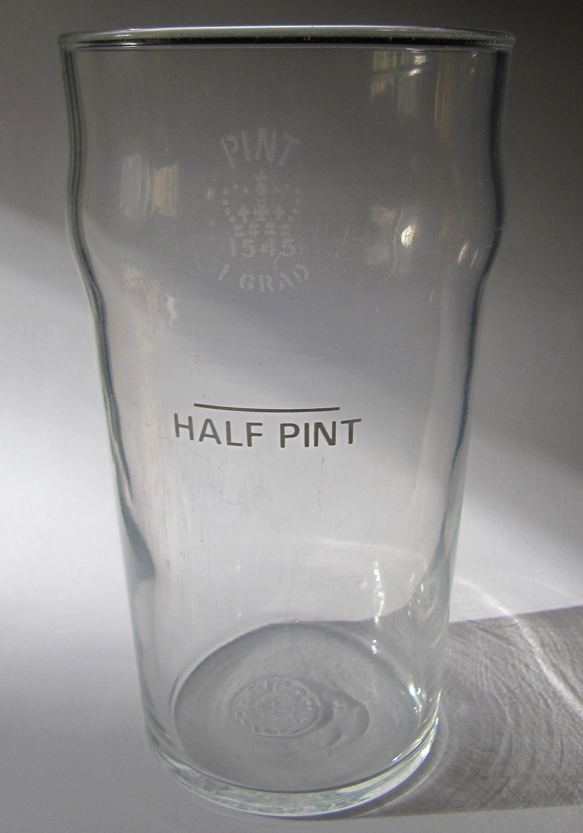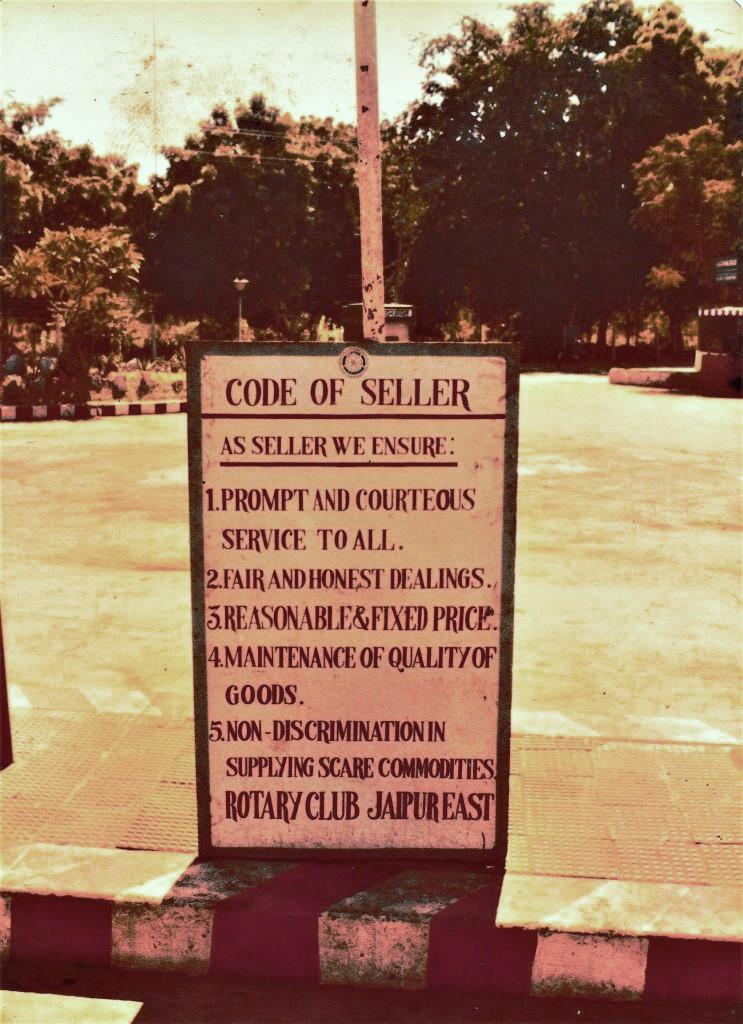|
Fill Line
A fill line is a marking on drinkware indicating the volume of liquid held by the glass. Many countries mandate fill lines on glasses used commercially as a consumer protection measure. European Union and Switzerland Each of the European Union member states had a variety of weights and measures acts regarding legal metrology for all measuring devices used in commerce, including drinkware. As part of the EU's 2004 Measuring Instruments Directive (2004/22/EC), these were harmonised. The transitional period ended on 30 October 2016, meaning all drinkware produced or sold in the EU or Switzerland after this date must conform to the EU directive. Austria In Austria, fill lines are governed by the ''Beverage Container Regulation'' (german: Schankgefäßeverordnung), which provides error tolerances; glasses between 10 and 50 ml must be within 5% of the declared volume; larger containers must be accurate within 3%. Germany Germany has had a number of weights and measur ... [...More Info...] [...Related Items...] OR: [Wikipedia] [Google] [Baidu] |
Ministry Of Economy (Austria)
In Austrian politics, the Federal Ministry for Digital and Economic Affairs (German: ''Bundesministerium für Digitalisierung und Wirtschaftsstandort'') is the ministry in charge of promoting commerce and industry, overseeing public works, and maintaining the public infrastructure. In some recent cabinets, it has also been responsible for employment; in others, for family affairs and science. The current Minister of the Economy is Margarete Schramböck. Originally founded in 1848 as the Ministry for Commerce and Public Works (''Ministerium für Handel und öffentliche Arbeiten''), the institution's formal name of exact portfolio have undergone numerous changes over the years. As of 2018, the ministry is officially called the Ministry of Digital and Economic Affairs (''Ministerium für Digitalisierung und Wirtschaftsstandort'' or ''BMDW''). History The Ministry of Economy was first established in the aftermath of the Revolutions of 1848 in the Austrian Empire as the Minist ... [...More Info...] [...Related Items...] OR: [Wikipedia] [Google] [Baidu] |
Consumer Protection
Consumer protection is the practice of safeguarding buyers of goods and services, and the public, against unfair practices in the marketplace. Consumer protection measures are often established by law. Such laws are intended to prevent businesses from engaging in fraud or specified unfair practices in order to gain an advantage over competitors or to mislead consumers. They may also provide additional protection for the general public which may be impacted by a product (or its production) even when they are not the direct purchaser or consumer of that product. For example, government regulations may require businesses to disclose detailed information about their products—particularly in areas where public health or safety is an issue, such as with food or automobiles. Consumer protection is linked to the idea of consumer rights and to the formation of consumer organizations, which help consumers make better choices in the marketplace and pursue complaints against businesses. ... [...More Info...] [...Related Items...] OR: [Wikipedia] [Google] [Baidu] |
British Beer And Pub Association
The British Beer and Pub Association is the drinks and hospitality industry's largest and most influential trade association representing some 90% of UK brewing (by volume) and the ownership of around 20,000 of the nation's pubs. History The Association was founded in 1904 as the Brewers' Society, was for a period in the 1990s known as the Brewers and Licensed Retailers Association before becoming the British Beer & Pub Association in 2000 to reflect its growing pub company membership. See also * British Institute of Innkeeping Awarding Body * Campaign for Real Ale References External linksBritish Beer and Pub Association website held at the |
Campaign For Real Ale
The Campaign for Real Ale (CAMRA) is an independent voluntary consumer organisation headquartered in St Albans, England, which promotes real ale, cider and perry and traditional British pubs and clubs. With just under 155,000 members, it is the largest single-issue consumer group in the UK, and is a founding member of the European Beer Consumers Union (EBCU). History The organisation was founded on 16 March 1971 in Kruger's Bar, Dunquin, Kerry, Ireland, by Michael Hardman, Graham Lees, Jim Makin, and Bill Mellor, who were opposed to the growing mass production of beer and the homogenisation of the British brewing industry. The original name was the Campaign for the Revitalisation of Ale. Following the formation of the Campaign, the first annual general meeting took place in 1972, at the Rose Inn in Coton Road, Nuneaton. Early membership consisted of the four founders and their friends. Interest in CAMRA and its objectives spread rapidly, with 5,000 members signed up by 197 ... [...More Info...] [...Related Items...] OR: [Wikipedia] [Google] [Baidu] |
Beer Head
Beer is a village and civil parish in the East Devon district of Devon, England. The village faces Lyme Bay and is a little over west of the town of Seaton. It is situated on the Jurassic Coast World Heritage Site and its picturesque cliffs, including Beer Head, form part of the South West Coast Path. At the 2011 Census, the parish had a population of 1,317. The village Beer is mentioned in the Domesday Book of 1086, at which time it was located within Colyton hundred and had 28 households. Its name is not derived from the drink, but from the Old English word ''bearu'', meaning " grove" and referring to the original forestation that surrounded the village. It is a pretty coastal village that grew up around a smugglers' cove and caves which were once used to store contraband goods. These are now part of the attraction of the village. Many of the buildings are faced with flint, a hard glassy stone found in the local chalk rock. Historically, the main sources of income for ... [...More Info...] [...Related Items...] OR: [Wikipedia] [Google] [Baidu] |
Imperial Units
The imperial system of units, imperial system or imperial units (also known as British Imperial or Exchequer Standards of 1826) is the system of units first defined in the British Weights and Measures Act 1824 and continued to be developed through a series of Weights and Measures Acts and amendments. The imperial system developed from earlier English units as did the related but differing system of customary units of the United States. The imperial units replaced the Winchester Standards, which were in effect from 1588 to 1825. The system came into official use across the British Empire in 1826. By the late 20th century, most nations of the former empire had officially adopted the metric system as their main system of measurement, but imperial units are still used alongside metric units in the United Kingdom and in some other parts of the former empire, notably Canada. The modern UK legislation defining the imperial system of units is given in the Weights and Measures Act ... [...More Info...] [...Related Items...] OR: [Wikipedia] [Google] [Baidu] |
Physikalisch-Technische Bundesanstalt
The Physikalisch-Technische Bundesanstalt (PTB) is the national metrology institute of the Federal Republic of Germany, with scientific and technical service tasks. It is a higher federal authority and a public-law institution directly under federal government control, without legal capacity, under the auspices of the Federal Ministry for Economic Affairs and Energy. Tasks Together with NIST in the USA and the NPL in Great Britain, PTB ranks among the leading metrology institutes in the world. As the National Metrology Institute of Germany, PTB is Germany's highest and only authority in terms of correct and reliable measurements. The Units and Time Act Bundesgesetzblatt (Federal Law Gazette), volume 2008, part I, No. 28, p. 1185 ff., 11 July 2008] assigns all tasks which are related with the realization and dissemination of the units to PTB. All legally relevant aspects regarding the units as well as PTB’s responsibilities have been combined in this Act. Previously, a ... [...More Info...] [...Related Items...] OR: [Wikipedia] [Google] [Baidu] |
Wine Glass Fill Line
Wine is an alcoholic drink typically made from fermented grapes. Yeast consumes the sugar in the grapes and converts it to ethanol and carbon dioxide, releasing heat in the process. Different varieties of grapes and strains of yeasts are major factors in different styles of wine. These differences result from the complex interactions between the biochemical development of the grape, the reactions involved in fermentation, the grape's growing environment (terroir), and the wine production process. Many countries enact legal appellations intended to define styles and qualities of wine. These typically restrict the geographical origin and permitted varieties of grapes, as well as other aspects of wine production. Wines not made from grapes involve fermentation of other crops including rice wine and other fruit wines such as plum, cherry, pomegranate, currant and elderberry. Wine has been produced for thousands of years. The earliest evidence of wine is from the Caucasus region ... [...More Info...] [...Related Items...] OR: [Wikipedia] [Google] [Baidu] |
Federal Institute Of Metrology
The Federal Institute of Metrology (METAS) is the Swiss national metrology organization. It is part of the Federal Department of Justice and Police The Federal Department of Justice and Police (german: Eidgenössisches Justiz- und Polizeidepartement, french: Département fédéral de justice et police, it, Dipartimento federale di giustizia e polizia, rm, ) is one of the seven departmen .... References External links * Standards organisations in Switzerland Federal Department of Justice and Police Metrology {{gov-stub ... [...More Info...] [...Related Items...] OR: [Wikipedia] [Google] [Baidu] |
Consumer Protection
Consumer protection is the practice of safeguarding buyers of goods and services, and the public, against unfair practices in the marketplace. Consumer protection measures are often established by law. Such laws are intended to prevent businesses from engaging in fraud or specified unfair practices in order to gain an advantage over competitors or to mislead consumers. They may also provide additional protection for the general public which may be impacted by a product (or its production) even when they are not the direct purchaser or consumer of that product. For example, government regulations may require businesses to disclose detailed information about their products—particularly in areas where public health or safety is an issue, such as with food or automobiles. Consumer protection is linked to the idea of consumer rights and to the formation of consumer organizations, which help consumers make better choices in the marketplace and pursue complaints against businesses. ... [...More Info...] [...Related Items...] OR: [Wikipedia] [Google] [Baidu] |
Harmonisation Of Law
In the European Union, harmonisation of law (or simply harmonisation) is the process of creating common standards across the internal market. Though each EU member state has primary responsibility for the regulation of most matters within their jurisdiction, and consequently each has its own laws, harmonisation aims to: * create consistency of laws, regulations, standards and practices, so that the same rules will apply to businesses that operate in more than one member state, and so that the businesses of one state do not obtain an economic advantage over those in another as a result of different rules. * reduced compliance and regulatory burdens for businesses operating nationally or trans-nationally. An objective of the European Union to achieve uniformity in laws of member states is to facilitate free trade and protect citizens. Harmonisation is a process of ascertaining the admitted limits of international unification but does not necessarily amount to a vision of total unifo ... [...More Info...] [...Related Items...] OR: [Wikipedia] [Google] [Baidu] |






